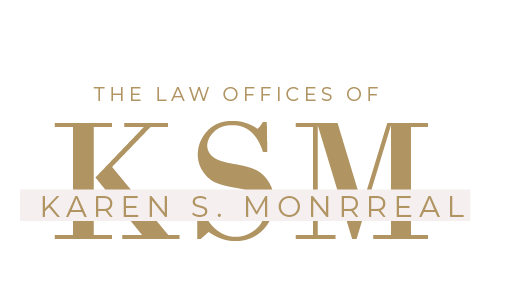Understanding U.S. Immigration Waivers: When and How to Apply
Navigating the U.S. immigration system can be challenging, especially for individuals facing inadmissibility issues. Immigration waivers offer a potential pathway for overcoming these barriers, allowing applicants to pursue their immigration goals despite certain legal obstacles. In this comprehensive guide, we’ll explore different types of waivers, such as the I-601 and I-212, and explain when and how they can be applied.
What Are Immigration Waivers?
Immigration waivers are legal remedies that allow individuals to overcome grounds of inadmissibility. These grounds can range from unlawful presence in the United States to prior deportations or criminal convictions. A successful waiver application essentially forgives the inadmissibility, permitting the applicant to proceed with their immigration process.
Common Grounds of Inadmissibility
Before understanding waivers, it’s essential to recognize the reasons someone may be deemed inadmissible. These include:
- Unlawful Presence: Accruing unlawful presence in the U.S. can result in bans from re-entry for 3 or 10 years, depending on the duration of the overstay.
- Criminal Convictions: Certain criminal offenses can make an individual ineligible for entry or residency.
- Health-Related Grounds: Communicable diseases or lack of required vaccinations can lead to inadmissibility.
- Prior Deportation: Being previously removed from the U.S. can create significant legal hurdles.
- Misrepresentation or Fraud: Providing false information during the immigration process.
Types of Immigration Waivers
1. I-601 Waiver: Application for Waiver of Grounds of Inadmissibility
The I-601 waiver is one of the most common waivers used to address various grounds of inadmissibility. It is typically filed by individuals who are outside the United States but are ineligible for a visa or adjustment of status due to inadmissibility.
Key Points:
- Eligibility: Applicants must demonstrate extreme hardship to a qualifying relative (U.S. citizen or lawful permanent resident) if the waiver is not granted.
- Applicable Grounds: Includes unlawful presence, certain criminal grounds, and misrepresentation.
- Filing Process: Submitted alongside the applicant’s visa or green card application.
2. I-601A Waiver: Provisional Unlawful Presence Waiver
This waiver is specifically designed for individuals who have accrued unlawful presence in the U.S. and wish to address this issue before departing the country for consular processing.
Key Points:
- Eligibility: Requires proof of extreme hardship to a qualifying relative.
- Advantages: Allows applicants to resolve inadmissibility issues before leaving the U.S., reducing the risk of extended family separation.
3. I-212 Waiver: Permission to Reapply for Admission After Deportation
The I-212 waiver is for individuals who have been previously deported or removed from the United States and are seeking permission to reapply for admission.
Key Points:
- Eligibility: Applies to individuals subject to re-entry bars following deportation.
- Considerations: Factors such as time elapsed since deportation, evidence of rehabilitation, and family ties in the U.S. are considered.
- Filing Process: Can be filed concurrently with other waiver applications, depending on the situation.
4. Waiver for Criminal Grounds
Certain criminal convictions can be waived under U.S. immigration laws, provided the applicant meets specific criteria.
Key Points:
- Eligibility: Includes crimes involving moral turpitude (CIMT) under certain conditions.
- Rehabilitation Evidence: Demonstrating rehabilitation and lack of repeat offenses strengthens the application.
5. Health-Related Waivers
Individuals found inadmissible on health-related grounds can apply for a waiver if they meet the necessary criteria, such as agreeing to vaccinations or treatment plans.
When to Apply for a Waiver
The timing of a waiver application depends on the specific circumstances and type of waiver. Generally, waivers are filed:
- Simultaneously with an Immigration Petition: For example, when applying for a visa or adjustment of status.
- Before Consular Processing: Particularly for unlawful presence waivers, allowing applicants to address inadmissibility before attending their visa interview.
- After a Removal Order: For individuals filing an I-212 waiver to overcome a prior deportation.
How to Apply for a Waiver
Step 1: Determine the Type of Waiver Needed
Consult an experienced immigration attorney to evaluate your case and identify the appropriate waiver(s) for your situation.
Step 2: Gather Supporting Evidence
Prepare a comprehensive packet that includes:
- Evidence of extreme hardship to qualifying relatives.
- Documentation of rehabilitation or mitigating circumstances.
- Letters of support from family, employers, or community members.
Step 3: File the Application
Submit the waiver application with the required forms, supporting evidence, and filing fees. Ensure all information is accurate and complete to avoid delays.
Step 4: Attend an Interview (If Required)
Some waiver applications may require an interview with a consular officer or USCIS official to further assess eligibility.
Tips for a Successful Waiver Application
- Seek Legal Assistance: Immigration law is complex, and an attorney can guide you through the process.
- Be Thorough: Provide detailed evidence and explanations to support your case.
- Stay Organized: Keep copies of all documents and correspondence.
- Demonstrate Good Moral Character: Include evidence of community involvement, stable employment, or other positive contributions.
Conclusion: Overcoming Inadmissibility with Confidence
Immigration waivers provide a crucial opportunity for individuals to address and overcome barriers to living or visiting the United States. By understanding the different types of waivers and seeking professional guidance, applicants can navigate this process effectively.
If you’re facing inadmissibility issues and need assistance, the Law Offices of Karen S. Monrreal in Reno, NV, are here to help. Contact us today to schedule a consultation and take the first step toward resolving your immigration challenges.
Ready to explore your options? Call the Law Offices of Karen S. Monrreal at (775) 826-2380 or visit https://monrreallaw.com/ to schedule your consultation. Let us help you overcome your immigration barriers and secure a brighter future.

